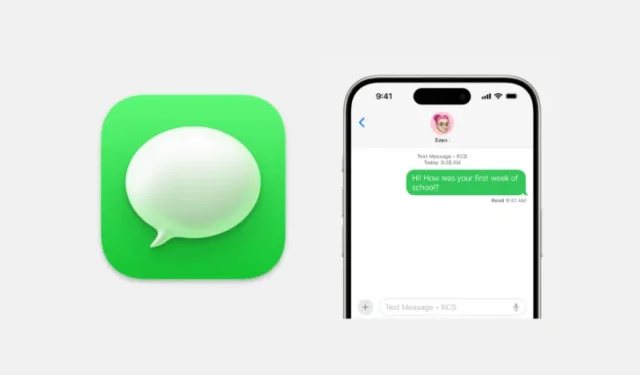Impact of Disabling RCS on Your iPhone

Essential Information
- Disabling RCS on your iPhone turns off enhanced messaging functionalities.
- Users will revert to standard SMS/MMS for chats with non-iPhone users.
- Features such as read receipts and typing indicators will be lost.
Rich Communication Services (RCS) is a cutting-edge messaging standard introduced by Apple in iOS 18. Turning off RCS on your iPhone brings notable changes to your communication with non-iPhone users. Here’s what to expect when RCS is disabled on your iPhone.
Switching Back to SMS/MMS
The primary change is that your iPhone will default to SMS and MMS for messaging with Android users. As a result, you will lose access to the advanced features provided by RCS.
Loss of Advanced Capabilities
Reduced Media Quality
One major advantage of RCS is the ability to send high-quality images and videos. When you disable RCS, you will be limited to the lesser media-sharing features of MMS, which often leads to compressed or pixelated visuals.
Group Chat Limitations
RCS enhances the group messaging experience. Without it, you may encounter restrictions in group chats with Android users, including fewer participants or the inability to name your group conversations.
No Wi-Fi Messaging
With RCS, you can send messages over Wi-Fi, which is beneficial when cellular service is unreliable. Turning RCS off means you will require cellular service to send SMS/MMS to non-iPhone contacts.
Encryption Implications
RCS messages typically benefit from encryption. By turning it off, your messages to Android users will lose this enhanced security.
Battery Life Impact
SMS/MMS can sometimes drain the battery more than RCS, especially when transmitting media. You might observe a slight variation in battery usage after reverting to older messaging protocols.
Potential Carrier Charges
Depending on your cellular plan, you might face extra charges for SMS/MMS messages, particularly when reaching out to international contacts, which might have been covered under data with RCS.
User Experience
Overall, disabling RCS will lead to a less integrated messaging experience while interacting with Android users. Conversations may feel more fragmented compared to the seamless RCS or iMessage experiences.
What Remains Unchanged When Disabling RCS on iPhone
Even though turning off RCS changes how you interact with Android users, certain features remain unaffected. These include:
- iMessage functionality: Communication with other iPhone users via iMessage stays the same.
- SMS/MMS capability: Your ability to send and receive standard text and multimedia messages remains intact.
- Contact list: Your contacts and their information remain unchanged.
- Message history: All previously sent and received messages stay as they are, with no deletions or alterations.
- Phone number: Your messaging-associated phone number stays the same.
- Cellular network connectivity: Your connection to the cellular network is not affected.
- App interface: The overall design and layout of the Messages app remain consistent.
- Notifications: You’ll continue receiving notifications for incoming messages as usual.
- Group conversations with iPhone users: Existing group chats with other iPhone users are unaffected.
- Emoji and sticker support: The ability to use emojis and stickers in messages is retained.
- Message search functionality: You can still search through your messages as before.
- Message forwarding: The ability to forward messages to other contacts remains available.
- Ability to block contacts: Your settings for blocked contacts will not be altered.
- Integration with iOS features: Functions like sharing content from other apps via Messages continue to work as they should.
These integral features of your iPhone’s messaging system will continue to function as normal, ensuring basic communication remains effective even when RCS is turned off.
Importantly, you can quickly re-enable RCS at any time by navigating back to your iPhone’s settings. This will restore all advanced messaging functionalities for conversations with Android users.
Leave a Reply